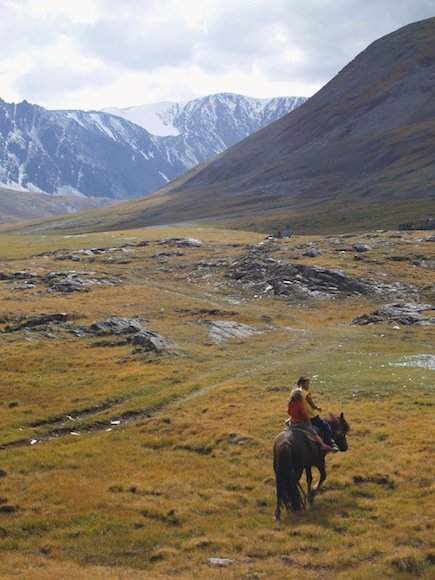A book from the perspective of the youngest child of a family of nomadic Tuvan sheep herders in Mongolia. Apparently it’s the first book of an autobiographical trilogy,* along with The Gray Earth and The White Mountain.

It’s set in the communist Mongolia of the 40s, although the politics is something remote in this book: both because the family is literally remote from the centres of power, and because it is seen through the eyes of a child, for whom it is much less important than the day to day life with the sheep. Still, the influence hangs over them: the father has been assigned quotas he has to meet, in wool and wolf hides and other things, that interfere with the proper management of the herd; the older siblings are taken away to be educated in town; and even the idea of becoming a prosperous farmer is dangerous because it risks being labelled a kulak.
Apparently the conflict between communism and the traditional way of life features more directly in the next volume, when the boy goes to school. Which actually sounds like a more interesting subject to me, so perhaps I’ll pick up a copy at some point.
Most of the book is from the very narrow perspective of a small child: his world is barely wider than his extended family and their cluster of yurts. So the book is about family dynamics: the tension between his father and uncles, the boy’s relationship with his parents, his grandmother and his dog; and about the details of daily life: the food, the sheep, the landscape, the weather.
All of which is interesting in a cultural/ethnographical sort of way; more importantly, it’s well written and evocative.
The Blue Sky was translated from the original German by Katharina Rout. It is my book from Mongolia for the Read The World challenge.
* That’s the author’s own description. But the book is also described as a ‘novel’. So I don’t know what the balance of autobiography and fiction is.
» The photo, ‘typical summer day’, is © Kit Seeborg and used under a CC by-nc-sa licence.